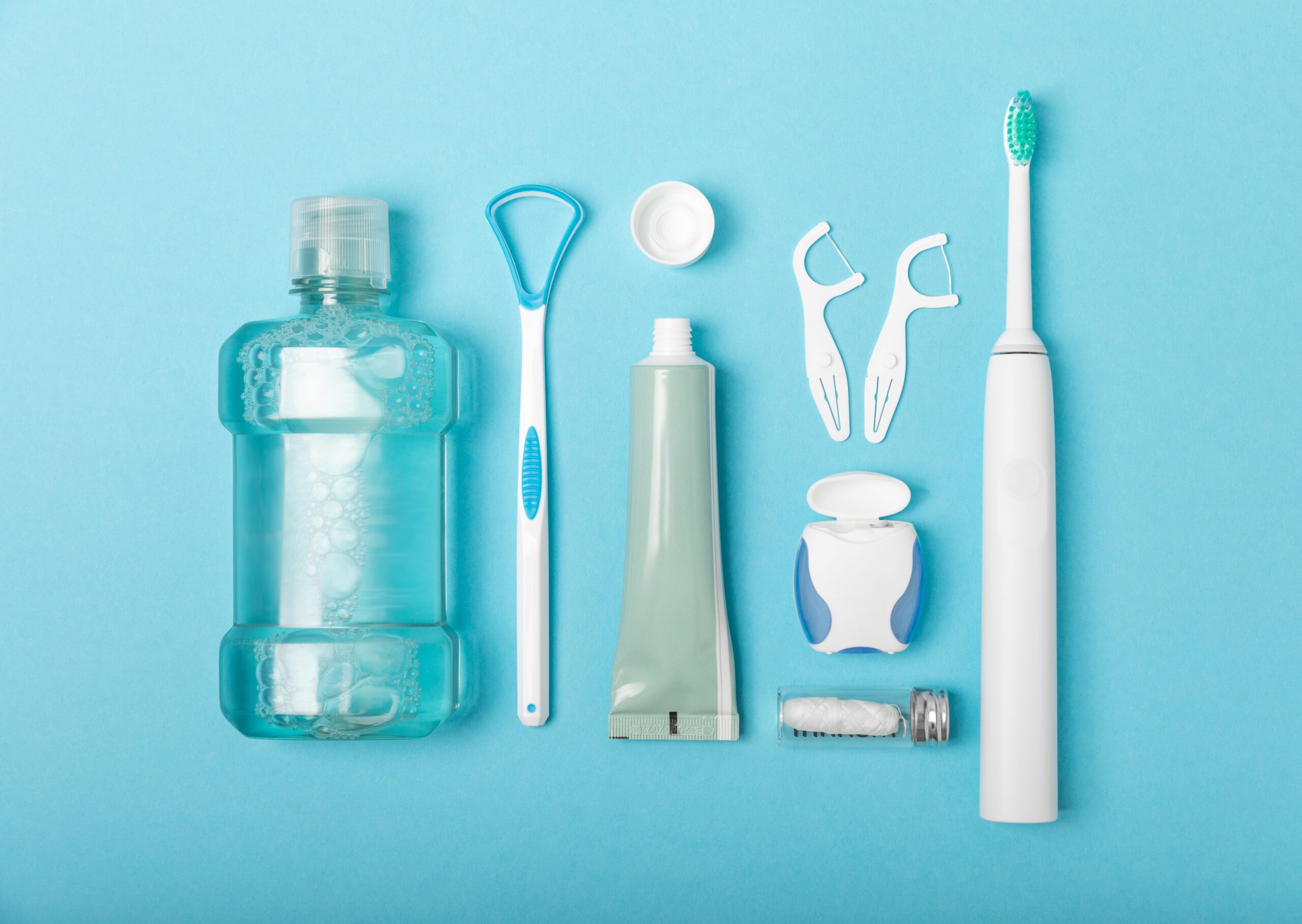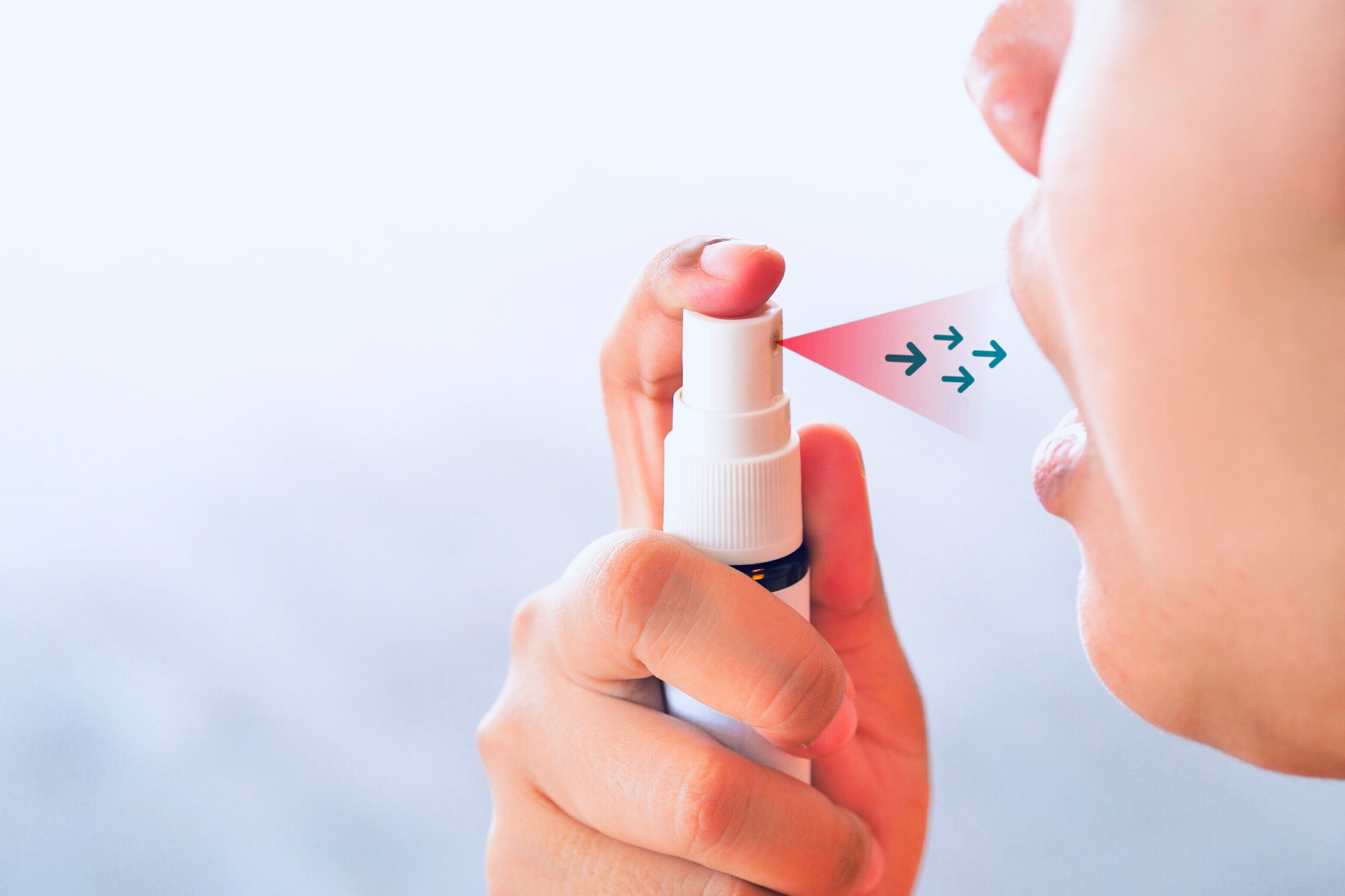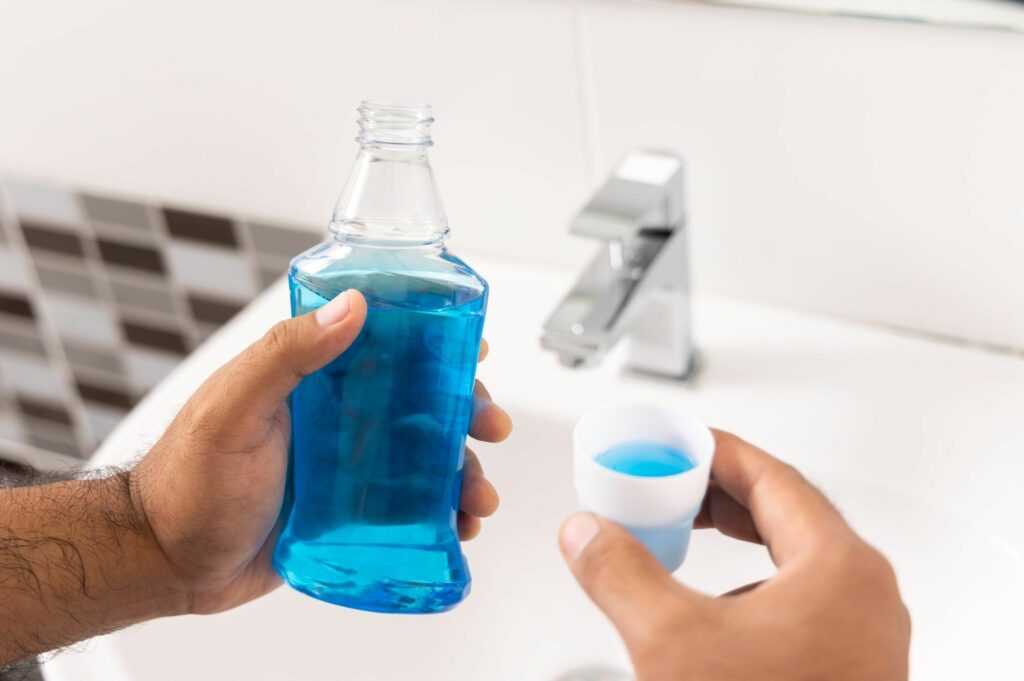
source: pinterest
Maintaining proper oral hygiene is crucial for a healthy and confident smile. Brushing and flossing are essential components of any oral care routine, but have you ever considered incorporating mouthwash into your daily regimen?
Mouthwash, also known as oral rinse or mouth rinse, offers several benefits that can contribute to overall oral health. In this article, we will delve into the importance of incorporating mouthwash into your oral care routine and explore the reasons why it should be an integral part of your daily habits. Let’s dive in!
3 Types of Mouthwash
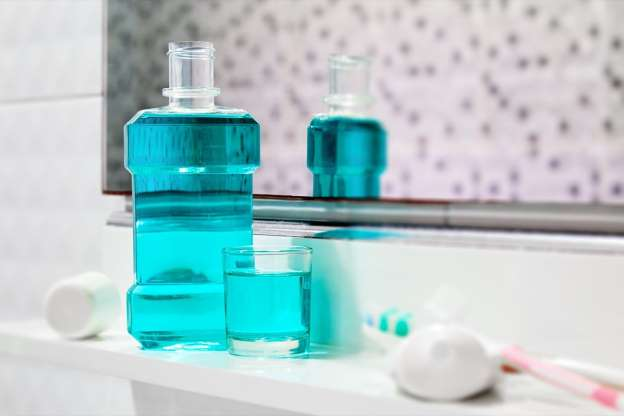
source: pinterest
When it comes to mouthwash, there are different types available in the market. Understanding these variations can help you choose the right one for your specific needs. Let’s explore the main types of mouthwash:
Antiseptic Mouthwash
Antiseptic mouthwashes contain active ingredients like chlorhexidine or hydrogen peroxide. These ingredients help in killing bacteria present in the mouth, reducing plaque formation, and decreasing the risk of gum diseases.
Fluoride Mouthwash
Fluoride mouthwashes are formulated with fluoride, a mineral known for its cavity-fighting properties. This type of mouthwash helps strengthen tooth enamel and aids in the prevention of tooth decay.
Cosmetic Mouthwash
Cosmetic mouthwashes primarily focus on providing a temporary solution for bad breath. They often contain ingredients like mint or other flavors that help mask odors in the mouth.
What does Mouthwash Do?

source: pinterest
Freshens Breath
One of the primary reasons people use mouthwash is to combat bad breath. Mouthwash contains ingredients such as menthol or essential oils that help mask unpleasant odors, leaving your breath feeling fresh and clean.
Reduces Bacteria and Prevents Plaque Build-up
Mouthwash with antiseptic properties helps eliminate bacteria in the mouth. It reaches areas that may be missed by brushing and flossing alone, reducing the risk of plaque formation, gum disease, and cavities.
Helps Prevent Gum Disease
Gum diseases like gingivitis and periodontitis can be detrimental to oral health. The active ingredients in certain mouthwashes help to reduce inflammation, soothe gum tissues, and prevent gingivitis from progressing into more severe stages.
Provides Additional Protection and Strengthens Teeth
Mouthwashes containing fluoride can strengthen tooth enamel and make teeth more resistant to acid attacks and cavity formation. This added protection helps maintain overall oral health and reduces the risk of tooth decay.
Regular use of mouthwash as part of your oral care routine can significantly contribute to a healthier mouth, fresher breath, and a more confident smile.
Choosing the Right Mouthwash

source: pinterest
Now that you are aware of the different types of mouthwash available and its function, it is essential to consider a few factors before selecting the most appropriate one for your needs:
Personal Needs and Goals
Determine what you aim to achieve by incorporating mouthwash into your routine. Do you want to target bad breath, plaque control, or overall oral health improvement? This will help you select the mouthwash that matches your specific needs.
Recommendations from Dental Professionals
Consult your dentist or dental hygienist to get personalized recommendations based on your oral health condition. They can guide you in choosing the most suitable mouthwash, considering factors such as existing dental issues or medical conditions.
Safety and effectiveness
Look for mouthwash brands that have a reputable history of safety and effectiveness. Read product labels, check for any warnings or precautions, and consider the feedback or reviews from other users to ensure you are making a well-informed choice.
By considering these factors, you can confidently select a mouthwash that will complement your oral care routine and provide you with the benefits you desire. Remember, it’s always best to consult a dental professional if you have any specific concerns.
Preparing to Use Mouthwash

Step 1: Gather the Necessary Supplies
Before using mouthwash, make sure you have the following supplies ready:
- Mouthwash of your choice: Select the type of mouthwash that aligns with your oral care goals and preferences. Ensure that the mouthwash is within its expiration date to guarantee its effectiveness.
- Measuring cup or cap: Some mouthwash brands provide a measuring cup or cap to help you dispense the appropriate amount. This ensures you don’t use more or less than the recommended dosage.
- Water (optional): Some mouthwashes require you to dilute them with water before use. Check the instructions on the bottle to determine if water is necessary.
Step 2: Read and Follow the Instructions
To make the most of your mouthwash, carefully read and follow the instructions provided by the oral care manufacturer. Pay attention to the recommended dosage, specific usage instructions, and any precautions or warnings mentioned.
Step 3: Take Note of any Precautions
While mouthwash is generally safe to use, it’s important to be aware of any potential precautions:
- Age restrictions: Some mouthwashes are not recommended for children under a certain age. Ensure you select a mouthwash appropriate for your age group or consult with a dental professional for guidance.
- Swallowing precautions: Mouthwash is intended for rinsing and spitting, not swallowing. It’s important to emphasize this to children or individuals who may have difficulty understanding or following instructions.
- Allergies or sensitivities: If you have any known allergies or sensitivities to certain ingredients, carefully review the list of ingredients in the mouthwash to avoid any adverse reactions.
By taking these preparation steps and adhering to the instructions and precautions, you can ensure a safe and effective mouthwash routine. In the next chapter, we will guide you on how to use mouthwash effectively for optimal results. Stay tuned for valuable insights!
How to Properly Use Mouthwash?

source: pinterest
Step-by-Step Guide for Using Mouthwash
- Measure the recommended amount: Use the measuring cup or cap provided with the mouthwash to measure the correct amount. This will vary depending on the brand and type of mouthwash, so it’s important to follow the instructions.
- Pour the mouthwash into a cup: Transfer the measured mouthwash into a cup, preferably one that is easy to hold and won’t spill.
- Rinse your mouth for the recommended duration: Take a sip of the mouthwash and swish it around your mouth. Gently move the liquid between your teeth and around your gums. Ensure you cover all areas of your mouth. Follow the recommended duration for rinsing, which is typically around 30 seconds to 1 minute.
- Spit out the mouthwash: After rinsing, lean over the sink and spit out the mouthwash. Avoid swallowing it, as it may contain bacteria, debris, or chemicals that are not meant to be ingested.
Additional Tips for Optimal Use
- Timing of mouthwash use: For the best results, use mouthwash after brushing and flossing. This ensures that you have already cleaned your mouth, and the mouthwash can provide an additional layer of protection.
- Avoid diluting mouthwash with water: Unless otherwise specified, do not dilute the mouthwash with water. Using it in its concentrated form allows for maximum effectiveness.
- Use mouthwash after meals or a thorough cleaning: Using mouthwash after eating can help freshen your breath and remove any lingering food particles. If you are rinsing after a thorough oral care routine, it provides an added layer of protection.
- Avoid eating or drinking immediately after rinsing: To allow the mouthwash to work effectively, refrain from eating or drinking for at least 30 minutes after rinsing. This gives the active ingredients time to work without interference.
By following these steps and tips, you can ensure that you are using your mouthwash effectively to reap its full benefits. In the next chapter, we will delve into the numerous benefits of using mouthwash regularly. Stay tuned to learn how mouthwash can contribute to your oral health!
Conclusion
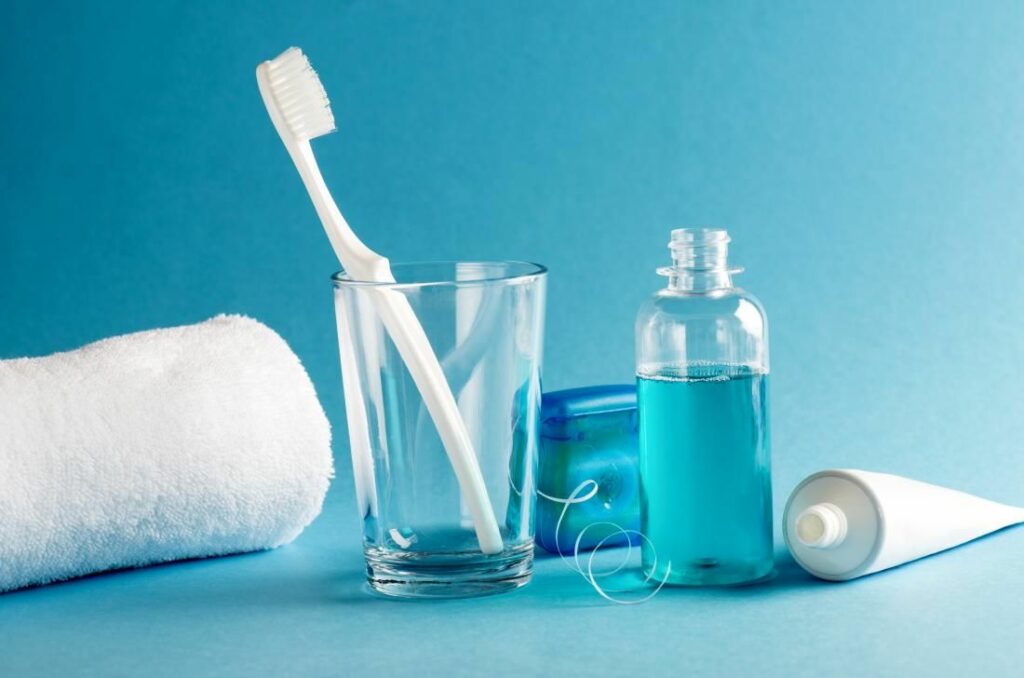
source: pinterest
Incorporating mouthwash into your daily oral care routine can offer numerous benefits. From freshening your breath to reducing bacteria and preventing gum disease, mouthwash plays a valuable role in maintaining optimal oral health. By choosing the right mouthwash, following proper usage techniques, and being consistent with your routine, you can enjoy a healthier mouth and a brighter smile.
Remember to select a mouthwash that aligns with your specific needs, follow the instructions provided by the manufacturer, and consult with dental professionals if you have any concerns. With regular use, mouthwash can become a valuable addition to your oral care arsenal, keeping your mouth fresh, clean, and protected.
Start incorporating mouthwash into your routine today and experience the positive difference it can make in your oral health journey.
